|
Place Your Own Text Here.
|
|
|
|
Brought to you by Dairy's Professional Development Organization®
|
|
YOU ARE THE MOST IMPORTANT asset on your dairy.
And since every important asset needs regular care and attention
PDPW is offering a weekly Podcast to keep you sharp, motivated and on top of your game. It is a complimentary part of being a PDPW member.
Click
here
to listen to the most recent episode of PDPW Podcast.
You won't want to miss a single podcast - subscribe now so each week's edition is delivered to your inbox.
|
Opportunities to learn...
CHECK OUT DAIRY ADVANCE.
Find, track and report your Continuing Education (CEs) at
www.DairyAdvance.org
.
|
For your dairy...
 WEANING BASED ON FEED INTAKE RATHER THAN AGE
was the focus of a study conducted by researchers at the University of British Columbia and published in the Journal of Dairy Science. In two experiments, calves were divided into groups; individual calves in one group received a higher rate of starter feed and - as each calf met starter intake goals - correspondingly less milk. For this group, weaning date was based on intake goals. Results showed that calves weaned based on starter intake can achieve similar weights to those weaned by age, despite consuming less milk. Some calves in the experiments also failed to meet starter intake targets unless given sufficient time to do so. Read more
here
. WEANING BASED ON FEED INTAKE RATHER THAN AGE
was the focus of a study conducted by researchers at the University of British Columbia and published in the Journal of Dairy Science. In two experiments, calves were divided into groups; individual calves in one group received a higher rate of starter feed and - as each calf met starter intake goals - correspondingly less milk. For this group, weaning date was based on intake goals. Results showed that calves weaned based on starter intake can achieve similar weights to those weaned by age, despite consuming less milk. Some calves in the experiments also failed to meet starter intake targets unless given sufficient time to do so. Read more
here
.
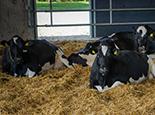 HOW DOES HEAT STRESS IMPACT STANDING AND LYING BEHAVIOR? A study published in the Journal of Dairy Science provides insights into how high-producing cows are impacted by heat and high humidity. Core body temperatures and activity levels of 20 cows were tracked during a heat wave to which they had not been acclimated. During the six-day trial, the number of lying bouts remained similar, but the length of time cows stayed lying down per bout decreased, with total daily lying time decreasing from 9.5 hours a day to 6.2 hours a day. Click here to learn more. HOW DOES HEAT STRESS IMPACT STANDING AND LYING BEHAVIOR? A study published in the Journal of Dairy Science provides insights into how high-producing cows are impacted by heat and high humidity. Core body temperatures and activity levels of 20 cows were tracked during a heat wave to which they had not been acclimated. During the six-day trial, the number of lying bouts remained similar, but the length of time cows stayed lying down per bout decreased, with total daily lying time decreasing from 9.5 hours a day to 6.2 hours a day. Click here to learn more.
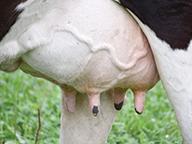 TREATMENT OF NONSEVERE, GRAM-NEGATIVE CLINICAL MASTITIS
with an intramammary product containing ceftiofur hydrochloride was analyzed by researchers in a study published in the Journal of Dairy Science. This negatively controlled, randomized clinical trial sought to examine clinical outcomes of 2-day and 8-day treatments. In addition, researchers contrasted clinical outcomes of cases caused by
Escherichia coli
or
Klebsiella pneumoniae
. Results showed use of intramammary ceftiofur did not result in improvement of most clinical cases, but noted that
Klebsiella pneumoniae
caused chronic intramammary infection and induced worse clinical outcomes. Authors determined more research is needed to identify which quarters affected by
Klebsiella pneumoniae
may benefit from antimicrobial therapy. Read the full text of the study
here
. TREATMENT OF NONSEVERE, GRAM-NEGATIVE CLINICAL MASTITIS
with an intramammary product containing ceftiofur hydrochloride was analyzed by researchers in a study published in the Journal of Dairy Science. This negatively controlled, randomized clinical trial sought to examine clinical outcomes of 2-day and 8-day treatments. In addition, researchers contrasted clinical outcomes of cases caused by
Escherichia coli
or
Klebsiella pneumoniae
. Results showed use of intramammary ceftiofur did not result in improvement of most clinical cases, but noted that
Klebsiella pneumoniae
caused chronic intramammary infection and induced worse clinical outcomes. Authors determined more research is needed to identify which quarters affected by
Klebsiella pneumoniae
may benefit from antimicrobial therapy. Read the full text of the study
here
.
|
Dairy currents...
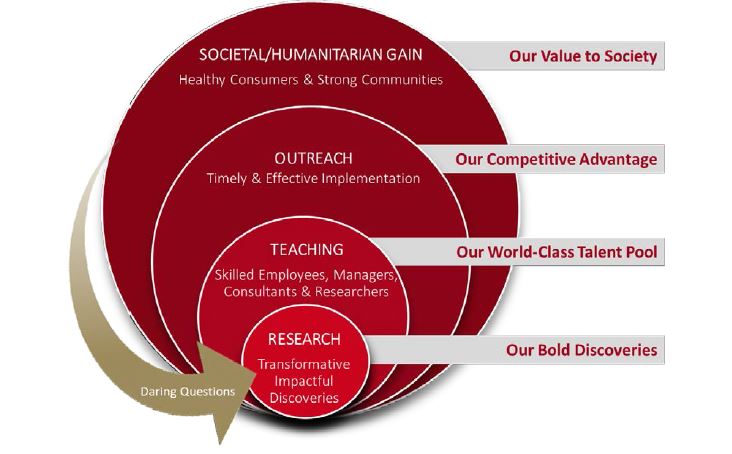
THE DAIRY INNOVATION HUB
is a proposal to direct $7.9 million to support research in dairy at UW-Madison, UW-Platteville and UW-River Falls. Your PDPW leaders are diligently working on behalf of its members and the agricultural community to ensure research dollars stay within the dairy industry.
If funds are approved, faculty positions and research at these three state agricultural universities will be directed toward four dairy-related areas:
- reducing the impact of dairy farming on our land, air, and water resources
- enhancing the nutritional value, convenience, and appeal of milk, cheese, yogurt, ice cream and other dairy products
- improving the health, welfare, and production efficiency of dairy cattle and other agricultural species
- fostering the growth of dairy-related agribusinesses to help rural communities thrive
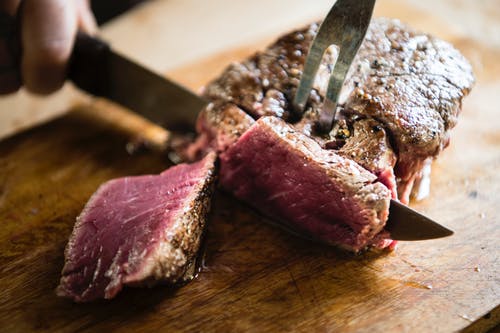 CONSUMERS ARE LOOKING FOR MEAT OPTIONS ACROSS THE GROCERY STORE
, according to the 14th annual "Power of Meat" survey from the Food Marketing Institute and the Foundation for Meat & Poultry Research and Education. The study showed that shoppers are looking for a combination of ready-to-eat, convenience and frozen options. While 86% of U.S. shoppers interviewed described themselves as meat eaters, but the data suggest that a younger generation is increasingly reporting a "flexitarian" regime, which is categorized as a mostly vegetarian diet with occasional meat and poultry consumption. 13% of Gen Z eat a flexitarian diet versus just 6% of Boomers. CONSUMERS ARE LOOKING FOR MEAT OPTIONS ACROSS THE GROCERY STORE
, according to the 14th annual "Power of Meat" survey from the Food Marketing Institute and the Foundation for Meat & Poultry Research and Education. The study showed that shoppers are looking for a combination of ready-to-eat, convenience and frozen options. While 86% of U.S. shoppers interviewed described themselves as meat eaters, but the data suggest that a younger generation is increasingly reporting a "flexitarian" regime, which is categorized as a mostly vegetarian diet with occasional meat and poultry consumption. 13% of Gen Z eat a flexitarian diet versus just 6% of Boomers.
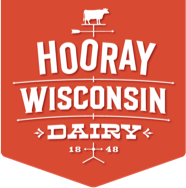
Click
here
to read more and watch a video about the study results.
ARE YOU READY FOR NATIONAL DAIRY MONTH? Believe it or not, June is just around the corner! Whether you are hosting a Breakfast on the Farm event, volunteering, or sharing your farm's story on social media, there are lots of great resources available from Dairy Farmers of Wisconsin. Check out information on the Dairy Promotions tab of their website, as well as find and share the list of Breakfast on the Farm events at www.HoorayWisconsinDairy.com. There is even a playlist of songs for the month on Spotify. Find it here.
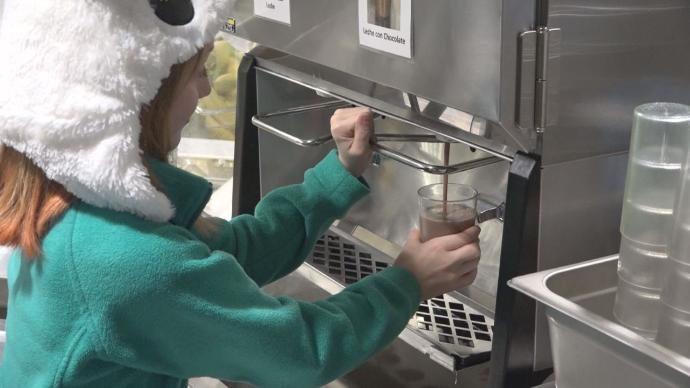 SCHOOL SWITCHES TO MILK MACHINES INSTEAD OF CARTONS.
A student-led initiative in Virginia resulted in the addition of milk-dispensing machines to replace the more than 39,000 individual cartons used by students. With the new machines, students can decide how much they want to take, resulting in less milk and carton waste. The district is evaluating the machine's impact on waste and will make a decision about rolling out other machines across the district. Read more and watch the video
here
. SCHOOL SWITCHES TO MILK MACHINES INSTEAD OF CARTONS.
A student-led initiative in Virginia resulted in the addition of milk-dispensing machines to replace the more than 39,000 individual cartons used by students. With the new machines, students can decide how much they want to take, resulting in less milk and carton waste. The district is evaluating the machine's impact on waste and will make a decision about rolling out other machines across the district. Read more and watch the video
here
.
|
For your business mind...
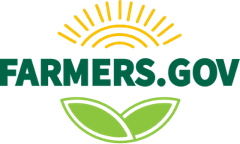 A NEW RESOURCE FOR H-2A VISA PROGRAM
is now available on the USDA web site. Farmers who use or are researching options for hiring seasonal or temporary farm workers through the H-2A program should visit
https://www.farmers.gov/
The resource is part of the new farmers.gov home page for farm-related information and includes H-2A application checklists, summary of program costs, application paths and more. Click
here
for more details. A NEW RESOURCE FOR H-2A VISA PROGRAM
is now available on the USDA web site. Farmers who use or are researching options for hiring seasonal or temporary farm workers through the H-2A program should visit
https://www.farmers.gov/
The resource is part of the new farmers.gov home page for farm-related information and includes H-2A application checklists, summary of program costs, application paths and more. Click
here
for more details.
 "PROCEDURAL DRIFT" CAN SLOWLY BUT SURELY IMPACT animal care, financial management and safety on a dairy farm, according to an article from Penn State University Extension. Procedural drift is defined as the "difference between what is written in a policy or procedure and what is happening in real life on a day-to-day basis." While cows crave consistency, people can often get bored or look for ways to cut corners on daily tasks. Over time, these small shifts can lead to significant inconsistencies in parlor procedures, feed management and equipment operation. Creating a culture of compliance on your dairy can help avoid this drift. Click here to learn more. "PROCEDURAL DRIFT" CAN SLOWLY BUT SURELY IMPACT animal care, financial management and safety on a dairy farm, according to an article from Penn State University Extension. Procedural drift is defined as the "difference between what is written in a policy or procedure and what is happening in real life on a day-to-day basis." While cows crave consistency, people can often get bored or look for ways to cut corners on daily tasks. Over time, these small shifts can lead to significant inconsistencies in parlor procedures, feed management and equipment operation. Creating a culture of compliance on your dairy can help avoid this drift. Click here to learn more.
REDUCE YOUR DAIRY'S EXPOSURE TO FRAUD
by taking a series of precautionary steps. According to an article in Dairy Herd Management, financial duties should be segregated within your organization. For example, the person who writes and records check dispersals should not be the same person who makes and records deposits. Conducting surprise audits is beneficial, though it's important to not over-rely on external audits. On average, 23% of fraud cases are detected by internal audits compared to 11% by external audits.
Other tips include:
- Set clear standards
- Check employee references
- Control who reviews sensitive documents
- Require employees who work in high-risk areas to take vacation days.
- Require back-up documentation
- Never pre-sign checks
To learn more, read the full article
here
.
|
If you want to lift yourself up, lift up someone else. --- Booker T. Washington
|
 |
|
 |
Dr. Victor Cabrera
|
VIRTUAL DAIRY FARM BRAIN project will he
lp sort cows by nutrition groups, predict mastitis, and identify ketosis.
New developments to the Virtual Dairy Farm Brain project were unveiled at the 2019 PDPW Business Conference. Presenting progress updates on the project were Dr. Victor Cabrera, Virtual Dairy Farm Brain project leader and associate professor of management in the Department of Dairy Science at UW-Madison, graduate student Jorge Barrientos, and post-doctorates Hector Delgado and Lilana Fadul.
Virtual Dairy Farm Brain is a project developed to simplify the complex task producers have of sorting through loads of data to make sound management decisions.
"There are currently silos of data on dairy farms that are each valuable but can't be used together," said Cabrera of the incentive for UW-Madison dairy science and computer science experts to collaborate on a practical solution for dairy farmers.
Multiple datasets are collected from each participating "study" farm and channeled into the Agricultural Data Hub, a single data warehouse. Individual projects then use the data to develop models that will provide decision-making tools to farmers in areas such as ketosis identification, mastitis prediction, and management of nutritional groups.
Finding ways to increase feed efficiencies and maximize milk production from that feed investment is a priority for most farmers. Barrientos shared how the project organizes cows into groups after compiling information from the Agricultural Data Hub, including production data, milk composition, nutrition requirements, and more.
"Our objective is to create a more homogenous group of cows with similar nutritional needs so we can create differentiated rations for each group," Barrientos said.
The nutritional group team is also working on a dashboard tool to monitor and manage data. According to Barrientos, a simulated model of the nutrition-grouping strategy on an 1,800 lactating cow dairy resulted in more than $7,000 in feed-cost savings over a 38-day period, and a nearly $14,500 boost in income over feed cost.
Delgado presented work underway to determine if existing data on dairies can help identify heifers at risk for developing clinical mastitis.
"Knowing that clinical mastitis during the first lactation can have lifelong negative consequences for both health and milk production, we're integrating genomic data, management data and laboratory results," said Delgado.
Delgado shared that the combination of genomic history, cow data and somatic cell count records can provide a warning for high genetic cows at risk for clinical mastitis, even when the somatic cell count is below 200,000.
For many dairy producers, somatic cell count data for individual cows is only available once a month through milk testing. Fadul presented information about a project to integrate milk-parlor and management-software data to develop a model that could give producers a real-time prediction of clinical mastitis.
Using data analysis and machine learning, the team developed an algorithm that predicts onset of clinical mastitis - with an 80 percent accuracy - based on changes in milk conductivity and milk production. Fadul added they saw changes in conductivity and production as early as five milking sessions prior to clinical mastitis being detected.
Dr. Cabrera noted work is moving forward quickly on several projects within the Dairy Brain program, with hopes of having some of the tools available to producers by June.
|
|
A BIG Thank You...
TO THE PDPW SPONSORS who are supporting your professional development organization! As a producer-led group, we extend a heart-felt "Thank You!" to those that stand alongside our nation's dairy farmers.
Their support allows PDPW to execute best-in-class producer training and has enabled us to become the go-to resource for unified outreach initiatives. If you or a company you know is interested in participating as a sponsor, please contact us at abonomie@pdpw.org or call 800-947-7379.
See the full list of generous sponsors
here.
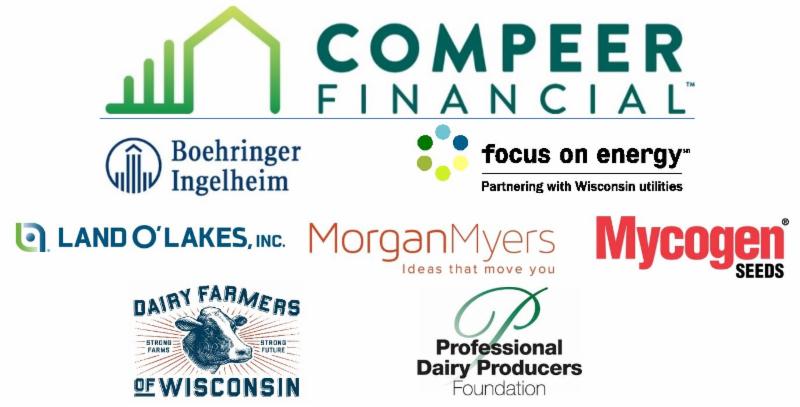
|
|
PDPW Education Calendar
| June 18-20 |
APPs Training for Non-Farm Professionals: Madison, Wis. |
| June 25, 26, 27 |
Water Tours: Various Locations |
|
August 13-14
|
Dairy Managers Institute™: Madison, Wis.
|
| September 14-27 |
PDPW International Dairy Tour: Germany & Holland
|
| December 10 |
Dairy Managers Institute™: Wisconsin Dells, Wis.
|
| January 14-16, 2020 |
Managers Academy: Location TBD |
| March 17-18, 2020 |
Cornerstone Dairy Academy: Alliant Energy Center, Madison, Wis. |
| March 18-19, 2020 |
PDPW 2020 Business Conference: Alliant Energy Center, Madison, Wis. |
STAY CONNECTED
800-947-7379
|
|
|
|
|